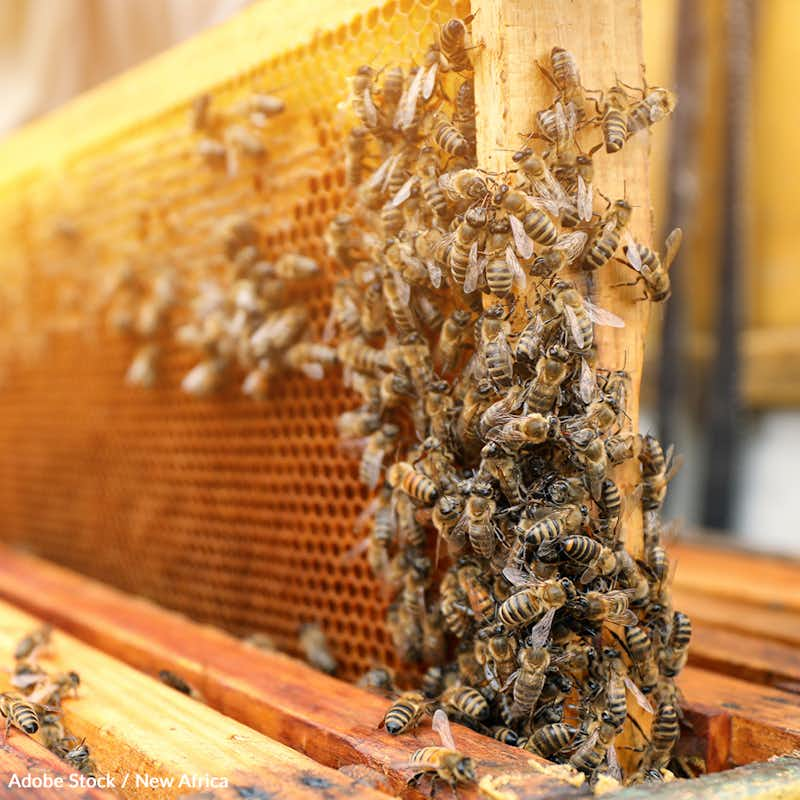Become A Pollinator Protector And Save Our Bees
12,548 signatures toward our 30,000 Goal
Sponsor: The Rainforest Site
Support honeybees and essential pollinators by planting pollinator-friendly plants and reducing the use of harmful chemicals that can kill honeybees.

The U.S. has lost over 50 percent of its managed honeybee colonies in the past 10 years1.
Scientists believe contributing factors include parasites, diseases and exposure to pesticides. A reduction of plant diversity due to commercial agriculture and habitat loss may also be affecting honeybees' ability to get the full range of nutrients from more limited sources of nectar and pollen2.
More recently, climate change and natural disasters have put even more pressure on honey bee colonies3.
Hurricane Ian impacted an estimated 1 in 7 U.S. bee hives, destroying more than 80,000 colonies4.
Florida is the fourth-largest honey producer in the nation5, but hurricane Ian has forced bee farmers to change plans. Their only focus now is on survival.
Researchers at the University of Florida estimate that at least 380,000 bee colonies have been impacted by hurricane Ian4, though it's still not clear how many hives were completely destroyed.
One of the best ways to save the bees from your own backyard by growing plants that bloom and produce pollen and nectar, like mint, basil, sunflowers, marigolds and others6.
About 50 crops grown in the U.S. depend on pollinators, including apples, almonds, blueberries, citrus, melons, pears, plums, pumpkins and squash. Most people know that bees are responsible for pollination, but not everyone understands just how important that responsibility is. In fact, one out of every three bites of your food is dependent on pollinators like honeybees7.
Help make every backyard in the United States a welcoming home for bees, and build a more resilient food system for all by pledging to become a Pollinator Protector!
- Pollinator Partnership (2022), "Pollination."
- Utah State University Extension (February 2022), "Factors Contributing to Bee Decline."
- Jennie L. Durant, University of California, Davis, (14 October 2022), "Climate Change Is Ratcheting Up the Pressure on Bees."
- Kirsten Romaguera, University of Florida IFAS (6 October 2022), "FAQs: Hurricane Ian impacts to beekeeping."
- United States Department of Agriculture (28 November 2022), "National Honey Report."
- University of Florida IFAS Gardening Solutions (2021), "Perfect Plants for Pollinators."
- Gardener's Supply Company (6 July 2022), "Attracting Beneficial Bees."
The Pledge:
I hereby pledge to protect pollinators near my home by:
- Planting pollinator-friendly plants like mint, basil, sunflowers, marigolds and others
- Avoiding dangerous pesticides like Neonicotinoids, organophosphates and carbamates, and anything else that is labeled as harmful to bees
- Preserving wild habitats wherever possible
- Promoting ecologically-friendly gardening and agricultural practices
- Learning about bees and the critical role they play in our food system
- Sharing what I know about the importance of pollinators with my family and friends, online and off
Following just one of these practices can make a positive impact on honeybee populations, and build a more resilient food system for all.
Pledged by,